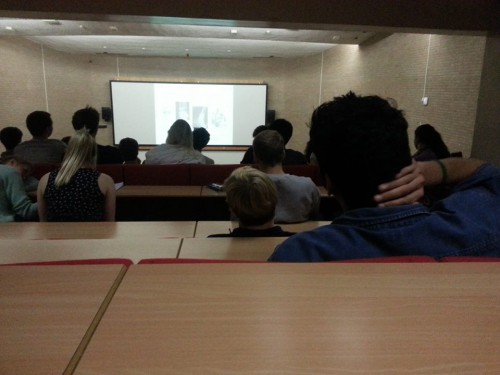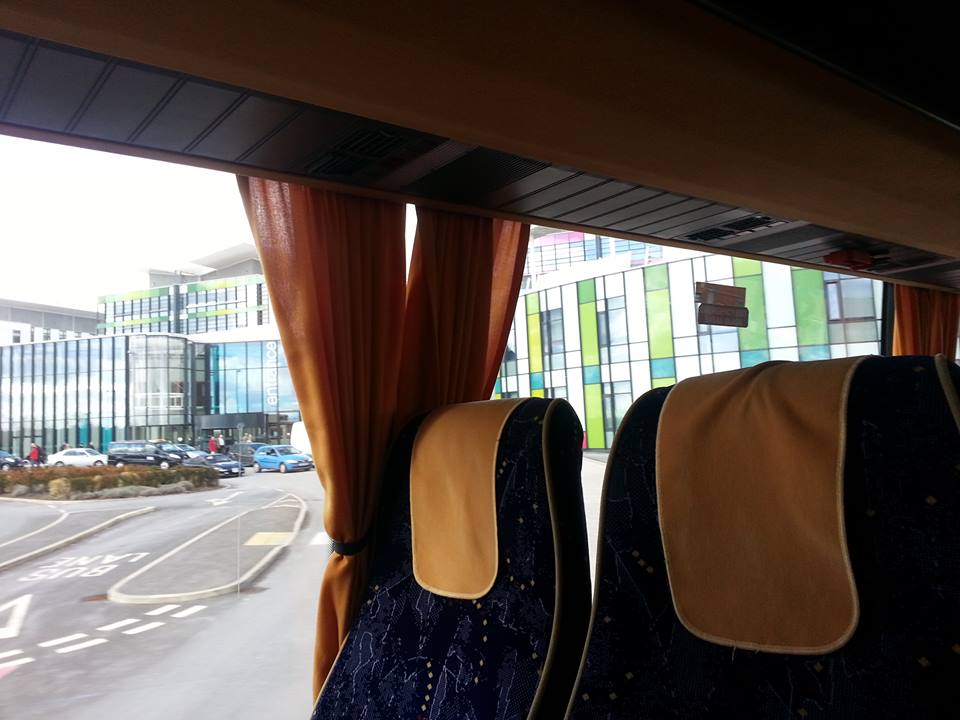April 15, 2014, by studentcontributor
Life as a pre-clinical student
 Hey! I’m Karishma, currently in my second year and absolutely enjoying it.
Hey! I’m Karishma, currently in my second year and absolutely enjoying it.
Preclinical years are (at Nottingham) the two and a half years before clinical phase 1 (CP1). These years are mostly spent in the lecture theatre (ave. 15 hrs per week) learning about how the body works – physiology, how drugs work – pharmacology, pathology and infectious diseases, biochemistry, behavioural sciences and public health etc.
And how can I forget, the most loved Anatomy – how the body is assembled. Thursday and Fridays are know as the dissection days at Notts during your 2nd and 3rd semester, where we are arranged in groups of 5 and dissect a specific region of a cadaver. I consider myself really fortunate to be at one of the four medical schools that still perform full body dissections. It makes some folks squeamish, but this approach to learning helps me figure where things are spatially, which I would find so confusing with prosections.
“I consider myself really fortunate to be at one of the four medical schools that still perform full body dissections.”
Nottingham’s curriculum is systems-based so you tend to learn one system at a time which makes it easier to consolidate stuff – cardiovascular and respiratory system in the 1st year and renal and endocrine, alimentary system in the 2nd year as well as neuroanatomy/science -all about the brain and its inner workings, which I’m studying at the moment.
Along with all the science-y stuff comes the fun clinical bits; we’re taught communications skills, which are really important as a doctor in order to get a good patient history and explaining things to people old, young, hearing impaired etc.
Our typical Wednesday will either involve a trip to the GP practice or hospital or a seminar on ethics followed by a trip up to clinical skills centre where we learn examinations such as taking blood pressures, listening to the chests etc. There are four GP and hospital visits each throughout the year and they provide us chances to practice these clinical skills on patients. All of this is very important to know before you are let lose on patients in CP1!
Societies
Wednesdays will last till 1pm max, giving you the rest of the day off to enjoy extracurricular activities. Preclinical years are pretty laid back in the sense that you have time to join societies and the university environment. Whether you enjoy sports, art, music, teaching, films, dancing etc, you can get involved in societies by both MedSoc and the general UoN societies. You can fundraise for Mission Zambia, Kenyan Orphan Project, climb Kilimanjaro and spend your summer doing something exciting!
Projects
This year I started my Community follow-up project where my colleague and I were allocated a patient to follow up over a year and learn about their diseases, the impact it has on them and the roles of people involved in their care.
In 3rd year, I will be doing my BMedSci project in a topic area ‘homebase’ I’ve chosen – Cancer and Ageing. It’s a great opportunity that allows me to research in-depth, an area of my interest and write a dissertation. Unlike many other medical schools that require an intercalated year to do a Bsc, Nottingham’s BMBS degree has this ‘built in’ (hooray to saving a year!)
“Unlike many other medical schools that require an intercalated year to do a Bsc, Nottingham’s BMBS degree has this ‘built in’”
I’m really looking forward to next year, not only to start my BMedSci project but also to finally enter CP1 (sling my stethoscope on, dress professionally and act like I know what I’m doing)!
No comments yet, fill out a comment to be the first


Leave a Reply